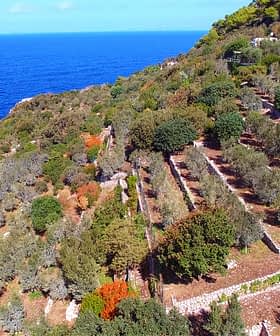Europe Opens New Infringement Procedure Over Italy's Handling of Xylella
Italy has 60 days to respond to a formal letter and take steps to implement the requirements imposed by the European Commission.
The European Union has opened an infringement procedure against Italy over an alleged delay in applying measures against the spread of Xylella fastidiosa in Apulia.
Some days ago, the European Commissioner for health and food safety Vytenis Andriukaitis met the Italian Minister of Agriculture Maurizio Martina and informed him that “the Commission would have no choice but to open an infringement procedure unless immediate actions were taken by Italy against the bacterium.”
See Also:Complete Coverage of the Xylella Fastidiosa Outbreak
Italy has 60 days to respond to the letter of formal notice and take steps through the implementation of the requirements imposed by the European Commission. Otherwise, the EU will pass to the next measure, sending a reasoned opinion on the matter.
The Italian government has convened the Apulia Region for a meeting next week in Rome, where actions and activities to contrast the spread of the bacterium must be submitted.
A first infringement procedure was opened at the end of 2015 and, based on the Commission Decision 2015/789, reproached the delays and ordered an uprooting of all the trees, even healthy ones, within one hundred meters around the infected plants.
Later, with its decision 764/2016, the EU established the need to create a buffer zone to the north of the infected area in Salento, with a width of not less than 10 Km (6.2 miles) and, within the infected area, a containment area with a width of 20 Km.
The Prosecutor of Lecce Cataldo Motta and public prosecutors Elsa Valeria Mignone and Roberta Licci have just ordered the release of the olive trees which have been seized in December, following the investigation of any possible responsibility in the spread of Xf and real causes of the so-called CoDiRO (Rapid Complex Desiccation of Olive Trees). This measure is not a direct result of the opening of the new infringement procedure against Italy, but it is a separate decision meditated for months by prosecutors.
The prosecutor intends to send to the European Commission the results of experimental natural treatments and ‘good farming practices’ carried out in recent months on infected trees, which showed visible signs of improvement.
Through monitoring in the field, it was found that some plants fully recovered with pruning and cleaning of the ground combined with natural methods. In particular, in the area between Brindisi and Lecce, the situation has changed as olive trees made a complete recovery and these results could affect the next EU directives.








